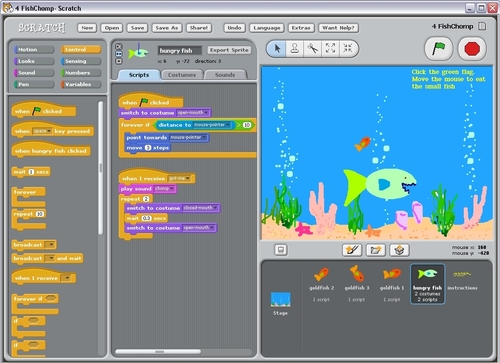Computer programming is increasing in significance within the National Curriculum and has implications from Foundation Stage through to Year 6 in Primary school. In the Early Years, programming is about simulations and "cause and effect", essentially learning through playing games!
Of particular importance is modelling software as this allows children to experiment and use their creative thinking to explore all kinds of scenarios. The children are creating their own programming procedures which is a process of trial and error.
Some fantastic modelling programs include: Tizzy's Tools, My Modelling Toolkit and 2Do it Yourself
At Foundation Stage, it fosters all kinds of learning points including: creating and thinking critically; noticing patterns in their experiences; persevering within an activity when challenges occur and making decisions about how to approach a task.
At Key Stage 1, children should move on to exploring what happens in real and imaginary situations perhaps through adventure simulation games.
At Key Stage 2, children are encouraged to investigate in order to answer "What if Questions" and evaluate their outcomes.
LOGO involves typing and creating a set of instructions in order for something to happen e.g. drawing a pattern. The key here is the process the children need to go through to create their set of instructions.
"Constructionism states that programming, the act of building a system, and debugging, finding obstacles and problems,and solving them, is the most efficient way for a child to learn. It is also the process where the child will explore mental thinking, and the closest the child will come to experience how we learn to learn. The programming language Logo was the environment created to allow young students explore the world of constructionism."http://www.formatex.info/ict/book/356-363.pdf
Scratch is a programming language inspired by LOGO that is accessible to the world. Children can interact with it to create interactive games and stories and share them on-line.


For Example children could use Scratch to go on a story telling journey, perhaps around the world which would link into both Geography and Literacy lessons. Children collaboratively working together works well when interacting with Scratch as it can often promote a productive "sharing of ideas" whilst constructing games or procedures.
Once again we can see how children are motivated to learn through the complete ownership they have of their task - perhaps not all computer games are bad for your health!
Find out more about computer programming and scratch by clicking on the following link:
http://www.vital.ac.uk/content/programming-scratch-0

No comments:
Post a Comment